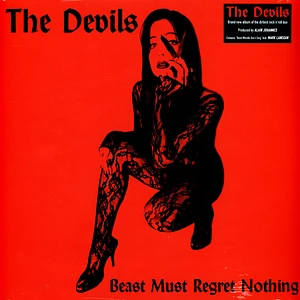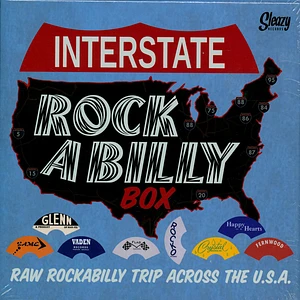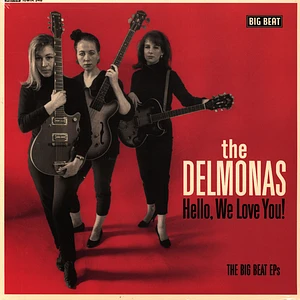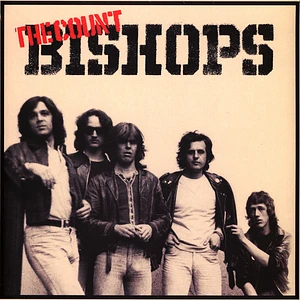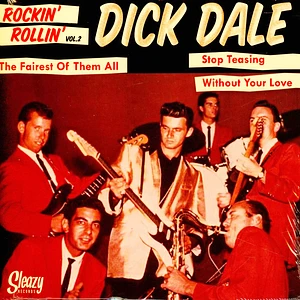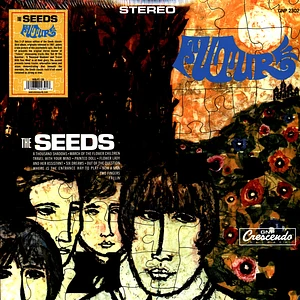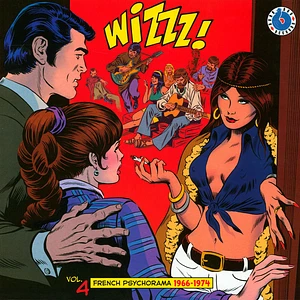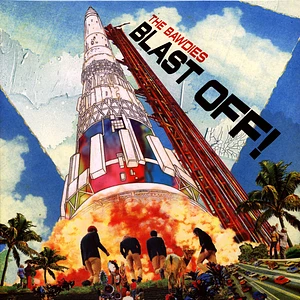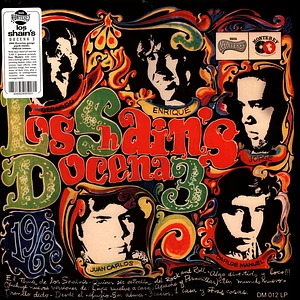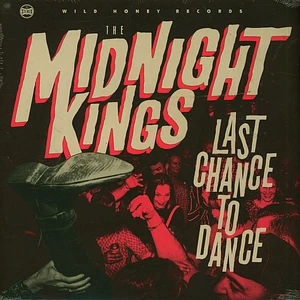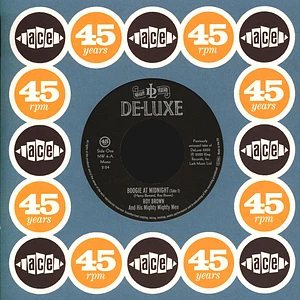The Wizzz ! saga continues with a fresh selection of 60s and 70s rarities gathered from the unchartered nooks of the French-pop galaxy. Stars, underbosses and unknown artists rub shoulders on this tangy new compilation. Take off on a sonic journey through the starry night of the late sixties. Al Awni Bouarane, better known as Abdelwahab Doukkali, was born on January 1st 1941 in Fès, Morocco. Drawn to the world of arts from his earliest years, he took an interest in theatre, drawing and painting before starting to sing in Casabalanca at the beginning of the sixties. In 1962, he leaves Morocco to settle down in Cairo, where his fame burgeoned. A singer songwriter awarded a number of honorary titles of international significance, he became, through the decades, one of the greatest figures of Middle-Eastern music. His repertoire, mostly traditional, fills the grooves of about twenty albums and some thirty singles. It holds a few surprising gems that bring together his eastern sensibility with the rhythms and harmonies of western rock: a handful of twists at the beginning of the sixties and more particularly the notable Je Suis Jaloux, sung in French and released on the label Philips in 1967. The track, recorded “as a matter of curiosity” according to the singer, is an outsider of the master’s discography. In an interview for the daily Aujourd’hui le Maroc in February 2017 he expressed his regrets for not pursuing a broader career in France: “One day I got to Paris and found people dancing to my song Je Suis Jaloux. Unfortunately I left Paris – that was a mistake. The company I was working with had offered great conditions but I am a child of the sun and the spring; I came across a cold period that lasted and led me to leave this city I still dream about”. Today Abdelwahab Doukkali shares his time between singing and painting and lives in Casablanca. Tom – a crepuscular mid-tempo with a touch of Soul produced for Barclay in 1968 – is François Bernheim’s first solo release. The arrangements are the work of Jean-Claude Petit, the recording was carried out by Bernard Estardy while the finest of French studio musicians played the instruments: Francis Daryzcuren on the bass (he appeared on Brigitte Bardot’s Harley Davidson, Le Sud by Nino Ferrer…), Marc Chantereau on the drums (Alexandrie, Alexandra by Claude François, Quelque chose de Tennessee by Johnny Hallyday, Je suis venu te dire que je m’en vais by Serge Gainsbourg…), and playing the six-string Sylvano Santorio (conductor for Jacques Brel) as well as Jean-Pierre Martin (stage guitar player for Johnny Hallyday). The session, held at the CBE studio of Paris’ rue Championnet, tests the young singer’s nerves who out-does himself in a vocal performance of great intensity. And yet, François Bernheim’s musical career had been flourishing for some time: as a youngster he had joined the Petits Chanteurs à la Croix de Bois, a choir for which he was made soloist at the age of 10. Without any formal musical background, he starts learning the guitar by himself at age 14 and, like many musicians of his generation, trains to the instrumentals of the Shadows or the Fantômes, then to the Beatles. He later evolves as a vocalist and songwriter with Roche-Martin along the Sanson sisters, Véronique and Violaine, met while they were singing on a beach. The band, produced by Michel Berger and Claude-Michel Schönberg, records two EP’s in 1967 for the label Odeon. Following the EP Tom, François Bernheim releases a second EP, on which appears yet another successful track, the dreamy Miami-Beach, then dedicates himself to artistic direction and discovering new talents. As he is still a law student, he chooses to hide his identity under the alias Gilles Péram, for fear his musical activities would discredit his status as a future lawyer. It’s with this new name he launches the Poppys, spurred by Eddie Barclay, and releases hits like Noël 70 and Non, non, rien n’a changé. Through his career, François Bernheim/Gilles Péram recorded seven albums and some twenty singles, worked with the likes of Esther Galil, Renaud, Louis Chedid, Patricia Kaas, Marie Laforêt, Brigitte Bardot, Nicoletta, Marc Lavoine, Carlos, Serge Reggiani, Richard Cocciante, Gérard Lenormand, Pierre Richard, Guillaume Depardieu, Elizabeth Depardieu, Gérard Depardieu and Chimène Badi, worked as an actor and made music for a number of ads (Cachou Lajaunie, Carte Kiwi, Malabar, Club Med, Mini Mir…), and even composed a track sung by Kanye West (Power). This chameleon of variétés made in France now works with the likes of the comedian Sandrine Sarroche and the singer Dani. Michel Handson signs this B-side with a touch of hip-hop in 1973 for the label Butterfly. The arrangements are the work of the Costa (authors of a dozen of singles between 1967 and 1987) and Gabriel Yared, a prolific movie score composer (Scout Toujours, 37°2 le Matin, L’Amant…). Before passing into oblivion, Michel Hanson records two more singles, of which L’Heure du slow traditionnel in 1978, languid slapstick track, kitsch and over the top, much appreciated by amateurs of the genre.“There’s no going out naked on the streets, Boeing!” This track from the Swede Matty Kemer’s only single, a tribute to freedom and aviation, was recorded for the label Disque d’Or. The lyrics weren’t the work of some unknown writer but of Ezra Bouskéla, member of the mythical Zorgones (from which hailed future members of Magma, like Zabu, and of Dynastie Crisis) and lyricist for Johnny Hallyday (Rendez-moi le soleil, Le monde entier va sauter, Dans ton univers) but also Herbert Léonard (L’oiseau d’argent). A real French-style beatnik, Ezra leaves for India regardless of his promising debut, leaving behind all of his musical projects, from which a collaboration with Jacques Lanzmann orchestrated by Lee Hallyday. His trip (by bus, and not by Boeing!) is the subject of the hectic autobiographical novel Shambo.
Gilles Janeyrand, piano and guitar player, witnesses two memorable stage acts in his early years: Jacques Brel’s farewell at the Olympia in 1964, then the Beatles at the Palais des Sports in 1965. It’s a revelation: coming out of the Beatle’s concert he decides he ought to become a singer. A few years later, a friend shows Gilles a classified ad published in France Soir: Robert Stigwood, producer for the Bee Gees, the Whos and Cream, is looking for French artists to showcase on his label, RSO. Gilles Janeyrand follows up on the ad and auditions at the Polydor studios, where he meets Claude Ebrard, head of RSO France. Gilles plays four songs at the guitar, from which Amour 2000 and Filles 2000, two tracks he composed for texts written by friends. Claude Ebrard chooses to record the two tracks with the arranger Jean-Claude Petit, and suggests adding flutes, in reference to Jacques Dutronc who had just released Il est cinq heures, Paris s’éveille. The track is recorded in 1969 at the Studio des Dames. Gilles remembers: “There were 25 musicians around me, and I thought it was perfectly normal! I was 18 and that’s the image I had of a career as a variété singer.” At the moment of the contract’s signature, Robert Stigwood sends a Jaguar and a photographer to pick Gilles up at this parent’s were he still lives. They’re taken to RSO’s headquarters, located near the Théâtre des Champs Élysées, and get off the car right as Jacques Brel comes out of the theatre, where he’s rehearsing his show L’Homme de la Mancha. Jacques Brel is familiar with the photographer and editor but doesn’t know Gilles yet, to whom he is introduced. Upon hearing Gilles is signing his first recording contract Jacques Brel utters a “Good luck” he’ll never forget.
Gilles leaves the choice of the A-side to the producers and Filles 2000 becomes the single’s B-side. Gilles promotes Amour 2000 on television, during a show hosted by Michel Drucker, who’ll invite him again repeatedly through the 70s. The record receives critical acclaim but the sales don’t follow. In 1974, at the Ferber studios, an LP is recorded with the musicians of the singer Christophe. The record, produced by St Preux for Heloïse Music, benefits from a rather important production: the crew enjoys over a month in the studio, not always even working full-days, preferring to round them off in the closest bar. Gilles is given full artistic freedom: Saint Preux, who lives with leopards, spends his afternoons at the cinema rather than behind the mixer. The period is one of hedonism, and Gilles adopts a psychedelic lifestyle. Some of the album’s tracks evoke the spirit of the first single: Les martiens and La fleur magique (of which a short version exists, intended for a single that never came out, probably lost in Heloïse Music’s archive). Overall, the album is a nice assemblage in the flamboyant progressive style of the mid 70s. Many more singles come out until the mid 80s, of which Je suis un passant, a minor success. But the big hit never comes and Gilles Janeyrand gradually turns to theatre, cinema and television. His name appears in the credits of Clara et les chics types (Jacques Monnet, 1981), La vie et rien d’autre (Bertrand Tavernier, 1989), J’accuse (Roman Polanski, 2019) as well as of another dozen of movies and TV series.
Albert-Henri Rykaert aka Alain Ricar was born in 1922 in Charleroi, Belgium. His father sold monkeys and, one day, exchanged a marmoset for a small accordion found in Berlin’s rubbles. He offered the instrument to his son. The latter first disregarded it, though it was to resurface in his life decades later. Peddler, birthstone merchant, he tries to lead a “normal” life before embarking on an artistic career later on, at the end of the 50s. During his first stage appearance playing the part of a dark, handsome character, the crowd bursts out laughing; Ricar involuntarily discovers his comical potential, which he was to exploit throughout his career. Comedian, singer, songwriter, he performs in cabarets or for the theatre, in Paris and in Belgium, then on RTB (Belgian TV). He namely appears in Les Aventures du Capitaine Long, a musical soap opera of his creation in which he plays the role of a lonesome singing sailor whose Camembert cheese-filled ship sank near a deserted island… Following the rediscovery of his accordion while looking through the families’ attic, Alain Ricar creates a comical singing act, which he presents at memorable concerts (for the opening act of Serge Gainsbourg in 1964, then of Johnny Hallyday in 1966). Through the 60s, he records five singles, of which I like sex is the only incursion into pop music. Alain Ricar who once wrote: “I have no age and I don’t miss it much”, dies in 1998 at the age of 92.
A cigar in his right hand, a gun in the left, binoculars around his neck complete with a predatory smile, Paul Dupret captivates us with the debonair B-side of the one and only single he released for the label Vogue in 1970.
Richard Hertel was born in Paris in 1947. At age 7 he’s the Petits Chanteurs à la Croix de Bois choir’s solo singer; he then goes on to study percussions at the Conservatoire de Paris. In 1966, he creates the Gottamou with Nino Ferrer and Bernard Estardy; they record two EPs at the CBE studio for the label Riviera. Meanwhile he plays for various French-variété stars: Nicoletta, Hugues Aufray, Claude François, Nino Ferrer. Towards the end of the 60s, Richard Hertel (nicknamed Totoche in the musical world) releases a first single as a singer on the label Liberty, Patatras Hola, on which he also plays the drums and the organ. Perfect groove, amused lyrics, and atonal gimmick: the title track is a success but the record doesn’t sell much and quickly sinks into oblivion. He releases a second single for Liberty, the score for the film Chitty chitty bang bang by Richard Hertel and his orchestra. The record though is no more than a dull commission. Richard Hertel then becomes Patcho and releases two funk-infused singles on Atlantic in 1971 and 1972, produced by the avant-garde composer Igor Wakhévitch. Close to the drummer Kenny Clark, he discovers the universe of Jazz which he integrates at the beginning of the 70s, playing the drums with the likes of Bill Coleman, Joe Newman, Eddie Lockjaw Davis, Guy Lafitte and many others. In 1974, he settles down in the Gers (Southwestern France) and develops a passion for traditional Occitan music. He starts teaching percussions at the Conservatoire Occitan de Toulouse, and plays alongside the singers Martina e Rosina De Peira. Richard Hertel passed away in 2016.
In 1968, Michel Didier lands on the French scene with five simultaneous single releases on the label Fontana. From a mainly folk corpus emerges this flashy cover of Rainbow Chaser by the English band Nirvana, here renamed Comme un arc-en-ciel, orchestrated and soaked in trippy effects by Jean-Claude Vannier.
Vedette internationale, or the lament of an inmate frustrated not to be a star of show business, is the work of the mysterious Liberatore (nothing to do with the illustrator of graphic novel RanXerox). Probably of Belgian origin, the track was released on Vogue in 1969.
Alain Serco signs a frantic homage to his best friend Kiki, the B-side of his sole single, released on South Records at the beginning of the 70s.
Gérard Gray, fond of poetry, starts signing after discovering Charles Beaudelaire’s The Flowers of Evil (Les Fleurs du mal) through Léo Ferré. From the mid 60s he regularly sings in Parisian cabarets (l’Écluse, la Contrescarpe, Chez Georges, Villa d’Este, Chez Monique Morelli…) and shares the stage with a number of celebrities such as Alain Barrière, Pierre Perret, Antoine, Jacques Dutronc and Claude François. Le Poisson vert, recorded in 1970, was created with his friend Frédéric Rochel, who first composes the music in a “nostalgic, ironic and joyful” spirit. The duo then undertakes a sound research inspired by François de Roubaix, with whom Gérard Gray and Frédéric Rochel had become friends. Sensitive to rare or exotic instruments, they search for a “different” sound and put together demos tinkering with a Revox tape deck and a variety of objects: dictionaries replace drums, water-filled crystalware simulate an organ while a whole array of flutes, jaw harps, decoys and whistles is used to create an uncanny, surrealist soundscape. With the melody and the themes clearly defined, Gérard Gray writes the beautiful lyrics inspired by underwater visions and submarine mysteries. The song is recorded in Lausanne for the Swiss label Évasions, with the label’s usual musicians. Even though they use traditional instruments, the original demo’s atmosphere is brought forward by the sound recording of Stephan Sulke (aka Steff, German singer and producer of numerous unknown sixties gems). ! Manque l’annonce de la démo dans les bonus de la version téléchargeable !
Le grand méchant loup by François Faray revisits Charles Perrault’s tale at the time of the sexual liberation, yielding an ambitious glam-rock track. Oddly enough, the singer goes off the radar right after releasing this one and only single in 1973 on the label Pathé.
Patrice Lamy, born Jacques Desachy, is a romantic singer from Lausanne. He self releases a single in 1969 under the alias Patrice Leman, then four more through the 70s. Laisse-moi médire que je t’aime is the B-side of his third record, entirely written, composed, arranged and directed in 1974 by Pascal Dufar (or Duffard, depending on the sources) to whom we owe a handful of variété songs but mostly the 1976 experimental album Dieu est fou. The musicians playing on Laisse-moi médire all hail from successful pop formations: Magma’s Francis Moze on the bass, Zao’s Mauricia Platon on backing vocals, Paul Stanissinopoulos and Demis Visvikis from the Greek band Avis on the drums and keyboards. Catherine Lara plays the electric violin while the cosmic-style cover is the work of Armande Altaï. After a short, uneven career, Patrice Lamy dies of sunstroke at age 35 in 1984.
The Tunisian crooner K.R. Nagati becomes well known at the end of the 60s with a cover of the Franco-Arab track Yasmina, originally by the Algerian albino signer Blond Blond. His repertoire goes from Arabic adaptations of Western hits (Strangers in the night, Doctor Jivago, Guantanamera…) to traditional and religious songs. Sidi Bou, the lyrics of which are sung in French, English, German, Arabic and Italian, pays tribute to a summer romance and the town of Sidi Bou Saïd, perched on the cliffs overlooking Carthage and Gulf of Tunis. De l’Orient à l’Orion, Yasmina’s beautiful B-side, can be found on the Born Bad compilation Mobilisation Générale.
Les Missiles are a group of four buddies from the city of Oran (Algeria). Together they first play instrumental pieces inspired by The Shadows, as Jupiter, before scattering all over France after Algeria’s independence. Micky Segura, drummer and later solo singer, ends up in Port-Vendres, close to the Spanish border. Well intent on reuniting the band, he leaves on a moped to find Robert Suire (the bass player) who had settled in Aubagne (South). From there they head to Jura (East), home to Bernard Algarra (rhythm guitar). With the last member impossible to locate, the trio makes its way to seek help from the mummified relics of Saint Claude, in the town of the same name. The very next morning they receive a postcard from their friend Manu Gonzalez (solo guitar), who proposes they should meet in Saint-Raphaël, were an apartment is waiting for them, or so he says. Upon their arrival, the three companions realise the apartment is in fact inhabited. They spend many weeks on the street, and then decide to get closer to the heart of French show business, Paris, and settle in Aulnay-sous-Bois (North-East suburbs). An audition takes them to Boulogne-Billancourt, were they perform their instrumental repertoire, before adding they can sing, too. The artistic director keenly asks for a demonstration, following which they sign a contract with the label Ducretet-Thomson. The name Jupiter is changed to Les Missiles, in reference to one of the directors’ car model. In 1964 they become famous with Sacré Dollar (a cover of the Kingston Trio’s Green black dollar) but also Maryline, a great success in Belgium and Switzerland. Three years of fame and concerts ensue, along with the release of two albums and over a dozen of singles. For six months the band tours with Claude François and even replace the Fléchettes on the backing vocals for the idol’s concert. Two members of the Missiles get married in 1966, and the band dissolves. Micky Segura sings as second voice and backing vocalist for Claude François, to whom he remains loyal until his death. He also sings along the likes of Nicoletta, Charles Aznavour, Gilbert Bécaud and Gérard Lenormand, as backing vocalist. La (nouvelle) guerre de cent ans, anti-beatnik jerk, comes from the band’s very last EP, which differs from the previous releases in that it features no covers and shows greater artistic freedom. The band’s sound veers towards garage, or even pre-psychedelic music, with the dissenting Publicité, filled with sound effects.
